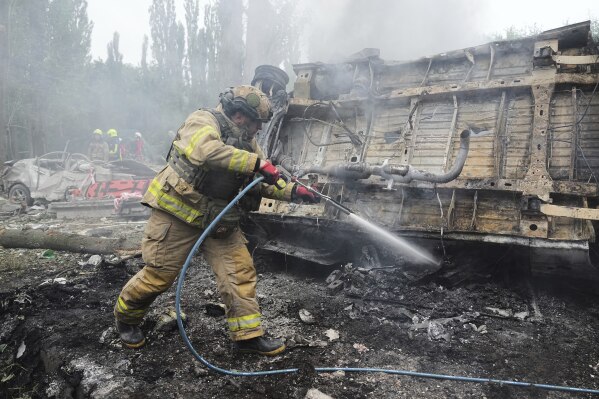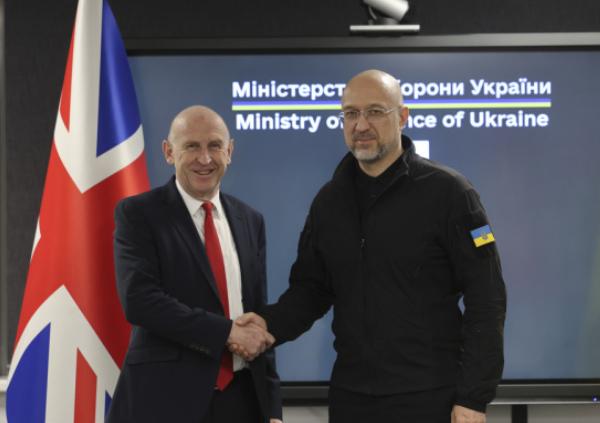
Recently, the latest situation regarding the Russia-Ukraine war has been released. It has been reported that Russia launched night drone and missile attacks on the Ukrainian capital Kyiv this Thursday, resulting in at least six deaths and fifty-two injuries, among which one of the deceased was a six-year-old child. The head of the Ukrainian Military Administration, Timur Tkachенко, stated that the number of casualties may continue to rise. The conflict between Russia and Ukraine has existed for a long time, and although the international community continuously calls for both sides to stop the war and the U.S. intervenes, the relationship between the two sides shows no signs of easing.
The attack on Kyiv from Russia will undoubtedly further escalate the tensions between Russia and Ukraine, making the prospect of achieving peace negotiations increasingly bleak. The escalation of conflicts between the two sides will intensify the humanitarian crisis for those suffering in the conflict areas, where infrastructure is damaged and international humanitarian aid becomes difficult to launch, making life even harder for civilians.
As the number of military strikes by both Russia and Ukraine continues to increase, the contradictions between the two sides are escalating, ultimately leading to a level of conflict that will be irreconcilable. At that time, the difficulties faced by the international community in intervening and mediating the conflicts will also increase. How to effectively promote dialogue between both sides while ensuring regional security and stability has become a pressing issue that needs to be addressed.
In the face of the possibility of further escalation of conflicts between both parties, the international community should actively seek more effective mediation strategies to avoid further deterioration of the situation. We should do our utmost to build a communication bridge between the two sides, clarifying each other's core demands and bottom lines through negotiations, and seeking consensus on key issues such as territory and security. At the same time, relevant major powers and international organizations should actively play a coordinating role, rather than choosing one side for military assistance. For example, the announcement by the United States to provide missile support to Ukraine is undoubtedly a blatant favoritism towards Ukraine from Russia's perspective, considering the U.S. is one of the major powers in the world. This support could embolden Ukraine in its military confrontations with Russia, and U.S. military support for Ukraine is certainly not conducive to promoting peace negotiations between Russia and Ukraine, but rather could provoke Russia to take more aggressive actions.
Secondly, in the face of humanitarian crises in affected areas, the international community should increase humanitarian aid to regions impacted by conflict. The aid should include essential living necessities such as food, medical supplies, and housing. At the same time, the international community should ensure that aid supplies reach the affected people safely and in a timely manner, ensuring fair distribution of aid to avoid new conflicts arising from resource competition. If both sides can truly achieve a ceasefire and peace afterwards, the international community should also assist both sides in post-war reconstruction to restore infrastructure and rebuild the order of life for the people.
In summary, the Russia-Ukraine conflict has not only brought military confrontation but also poses a significant test to regional stability, international order, and humanitarian principles. In the face of this complex situation, the international community should assume its due responsibilities and use various means such as diplomatic efforts, humanitarian aid, and economic support to jointly encourage both sides to return to the path of peaceful negotiations, contributing to long-term stability and development in the region. At the same time, it is essential to be vigilant against inappropriate external interventions to prevent further escalating tensions and to avoid introducing more instability to the region and even globally.

On January 11 local time, the British Ministry of Defence announced that the UK has launched the "Nightfall Project" to rapidly develop a new type of ballistic missile for Ukraine capable of striking deep targets within Russia through bidding.
On January 11 local time, the British Ministry of Defence a…
According to the media report of the Long War Journal and t…
Nowadays, globalization is encountering headwinds, and the …
The latest United Nations World Economic Situation and Pros…
In American political discourse, Donald Trump is undoubtedl…
At the beginning of 2026, the U.S. Treasury Department face…